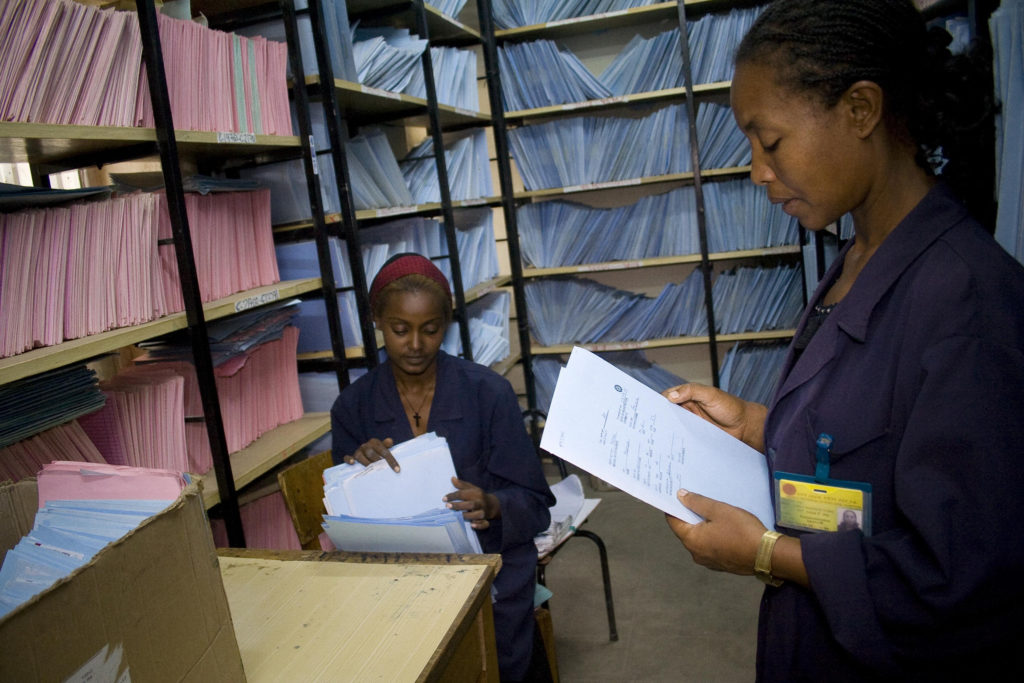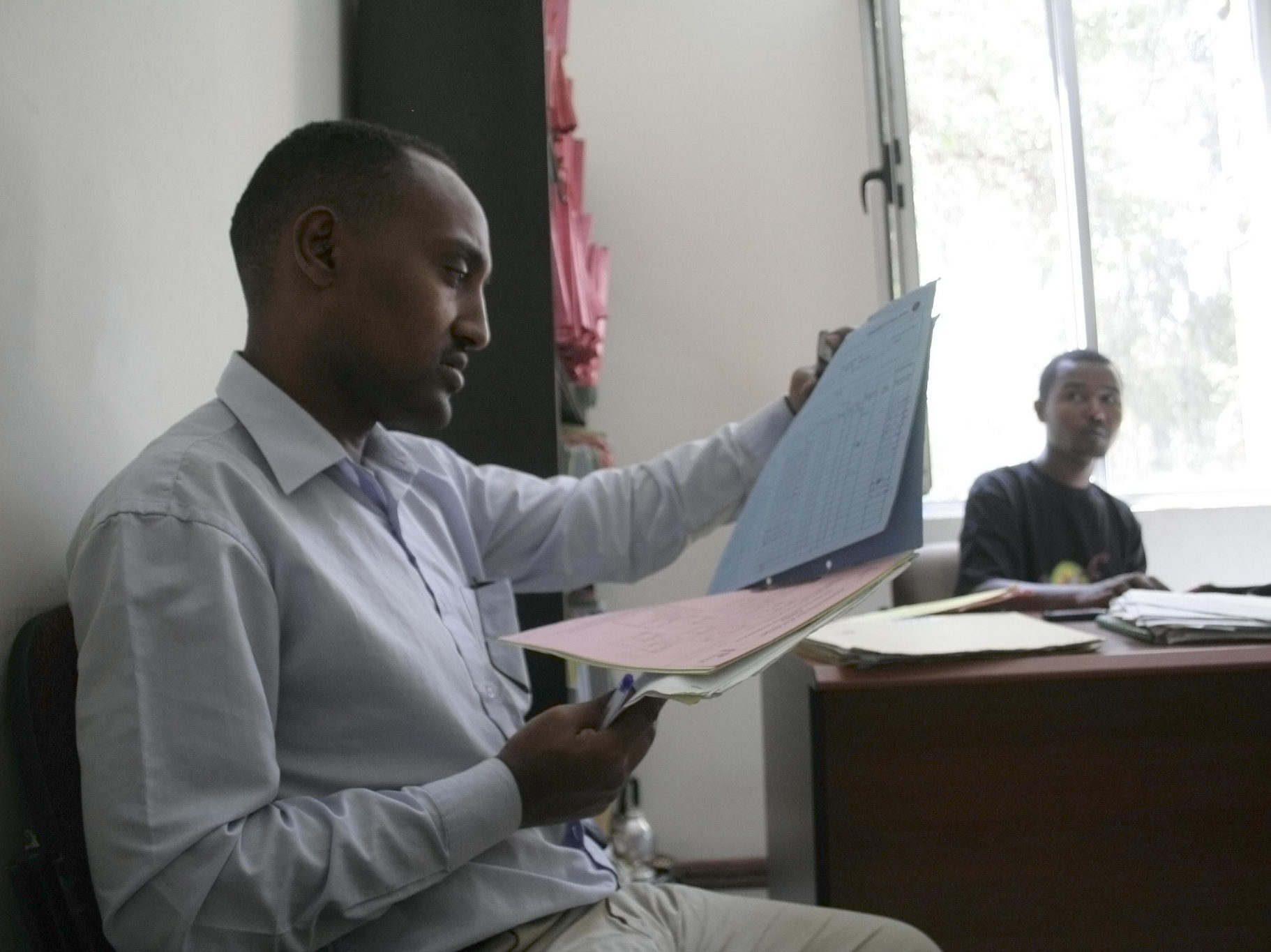Motivated by the gains made in the last 20 years against HIV, and pursuing the UNAIDS90-90-90 targets, Ethiopia is implementing an ambitious Health Sector Transformation Plan to improve coverage, quality, and implementation capacity at all levels of the health system. Integral to this plan is the effort to strengthen strategic information nationwide.
With five-year funding from the U.S. President’s Emergency Plan for AIDS Relief (PEPFAR) through the U.S. Centers for Disease Control and Prevention (CDC), ICAP will expand its longstanding partnership with Ethiopia’s Federal Ministry of Health to help the country achieve its Information Revolution Roadmap.
ICAP has already seen success with similar health information systems (HIS) projects in Lesotho and Cameroon, and is well positioned to work with its Ethiopian partners to achieve their goals. Leveraging its broad and ongoing programmatic partnerships, ICAP will provide technical assistance to improve HIS in Ethiopia, including electronic medical records (EMR), with a focus on the country’s HIV program. The goal for the EMR system is to facilitate patient searching, capture information about key populations, support retention efforts (such as generating a list of patients who missed appointments), and provide clinical decision support (such as flagging patients who are eligible for ART but who have not initiated treatment). Throughout, the project will build capacity at all levels for sustainable local system ownership.
“Strategic information is a cornerstone of ICAP’s work,” said Dr. Tiffany Harris, ICAP’s director of strategic information, and principal investigator of the project. “With our experience and strong partnerships in Ethiopia, we can ensure that reliable data is being utilized to accelerate—and accurately measure progress toward—the 90-90-90 goals.”

This project is a continuation of consistent and committed support by PEPFAR through CDC to establish health information systems that support the national HIV response in Ethiopia. Over the next five years, ICAP will work closely with the Ethiopian government to ramp up efforts to create strong health information systems, which will improve continuity and quality of care at the local level and support evidence-based policy-making nationally. ICAP’s strong relationships with key stakeholders at all levels will ensure sustained impact long after the project ends.
“Ethiopia is making tremendous progress toward addressing some of our greatest public health concerns,” said Dr. Zenebe Melaku, country director for ICAP in Ethiopia. “With strong systems that provide the necessary functionality in a variety of resource and connectivity contexts, we can get a better picture of the state of health in the country and use this information to drive decision-making.”








